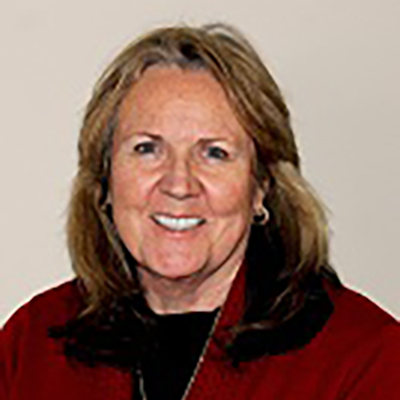Claudia Peyton
Latest News

College of Health, Human Services and Nursing
Department of Occupational Therapy
Associate Professor
310-243-3067
cpeyton@csudh.edu
EDUCATION
Ph.D.- University of Nebraska LincolnBachelor of Science – Loma Linda University
Associate of Science - San Bernardino Valley College
BIO
Dr. Claudia G. Peyton has been an occupational therapy educator since 1983, serving as the Chairperson of the Departments of Occupational Therapy at Creighton University, the University of Alabama at Birmingham, and California State University at Dominguez Hills. During her tenure as Chairperson at Creighton University, the first clinical doctoral degrees offered in the field of Occupational Therapy were developed; the post-professional and entry level clinical doctoral degrees (OTD). She is a Fellow of the American Occupational Therapy Association and has received many other state and national awards for her contributions to the field of occupational therapy and to her community. Dr. Peyton has practiced in the areas of child, adolescent and adult mental health, HIV/AIDs community service, and pediatrics in the school system.
SCHOLARSHIP AGENDA
As the Founding Chair of the MSOT program at CSUDH, Dr. Peyton has focused her scholarship of application on program development. She has nationally recognized expertise in the areas of qualitative and mixed-methods research, with many published research abstracts and articles in national and international journals. In support of her scholarship of discovery and teaching, she has been teaching qualitative research and mentoring university graduate students in research endeavors since 1996.
Peer Reviewed Journal Articles
- Huang, Y. H., Borska, E., Peyton, C. G., Alvarez-Jett, N., Eriskson, T., Groves, M. (2016). Relationship between fear of falling and fall precautions taken by community-dwelling older adults. American Journal of Occupational Therapy, 70, Supplement 1.
- Hwang, J.L., Peyton, C. G., Kim, D., Nakama-Sato, K. K. & Noble, A. E. (2014). Post-Deployment driving stress and related occupational limitations among veterans of Operation Iraqi Freedom and Operation Enduring Freedom. American Journal of Occupational Therapy, 68, 384-397.
- Huang, Y. H., Peyton, C.G., Hoffman, M. & Pascua, M. (2011). Teacher’s perspectives on collaboration with occupational therapists in inclusive classrooms: A pilot study. Journal of Occupational Therapy in Schools and Early Intervention, Special Issue-December 2010, 3, 4.
- Mu, K., Brown, T., Peyton, C.G., Roger, S., Huang, Y. H., Stagnitti, K. et al. (2010). Occupational therapy students' attitudes towards inclusion education in Australia, United Kingdom, United States, and Taiwan. Occupational therapy international, 17, 1, 40-52.
- Brown, T., Mu, K., Peyton, C.G., Rogers, S., Stagnitti, K., Hutton,E. et al. (2009). Occupational therapy student attitudes towards individuals with disabilities: A comparison between Australia, Taiwan, the United Kingdom and the United States. Research in Developmental Disabilities, 30, 6, 1541-2555.
- Detweiler, J., & Peyton, C. (2000). Developing a language for discussing writing: Composition in occupational therapy. Innovations in Occupational Therapy Education.
- Detweiler, J., & Peyton, C. (1999). Defining occupations: A chronotopic study of narrative genres in a health discipline’s emergence. Written Communication, 16, 4, 412-468.
- Pierce, D., & Peyton, C. G. (1998). An historical cross-disciplinary perspective on clinical Doctoral education. American Journal of Occupational Therapy, 53, 1, 64-71.
- Peyton, C., & Goldstein-Lohman, H. (1997). Influence of conceptual models of work in occupational therapy history. Journal of Work, 9, 209-219.
- Goldstein-Lohman, H., & Peyton-Runyon, C. (1996). Counseling the geriatric client about sexual issues in counseling and therapy. Directions in Clinical Psychology.
- Peyton-Runyon, C., Stohs, S., & Atiken, M. (1994). The clinical doctorate in occupational therapy. Journal of Allied Health, 53, 51-63.
- Goldstein-Lohman H., & Peyton-Runyon, C. (1993). An occupational therapy teaching model to increase sensitivity about geriatric sexuality. Journal of Physical and Occupational Therapy in Geriatrics, 11, 2, 57-75.
- Goldstein-Lohman, H., & Peyton-Runyon, C. (1991). Intergenerational experiences for occupational therapy students. Journal of Physical and Occupational Therapy in Geriatrics, 10, 2, 17.
Book Chapters
- Padilla, R., & Peyton, C. (1997). Neuro-occupation: Historical review and examples. In C. B. Royeen (Eds.), Neuroscience and occupational links to practice. Bethesda, MD: The American Occupational Therapy Association.
- Peyton-Runyon, C. (1996, 2003 and 2010). Aging well: The COTA as change agent in health promotion and disease prevention. In H. Goldstein, R. Padilla, & S. Byers-Connon (Eds.), Occupational therapy with elders: Strategies for the COTA (3rd Ed.). St. Louis, MO: Mosby.